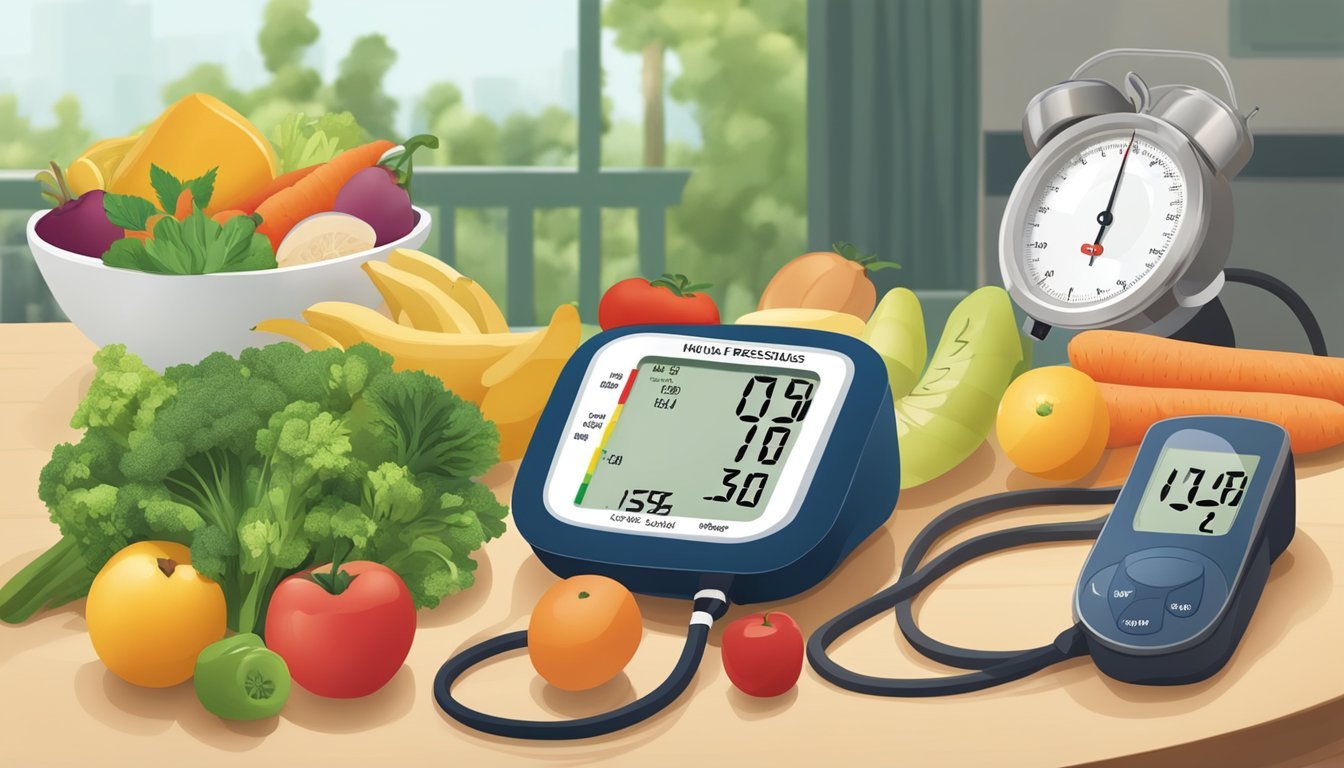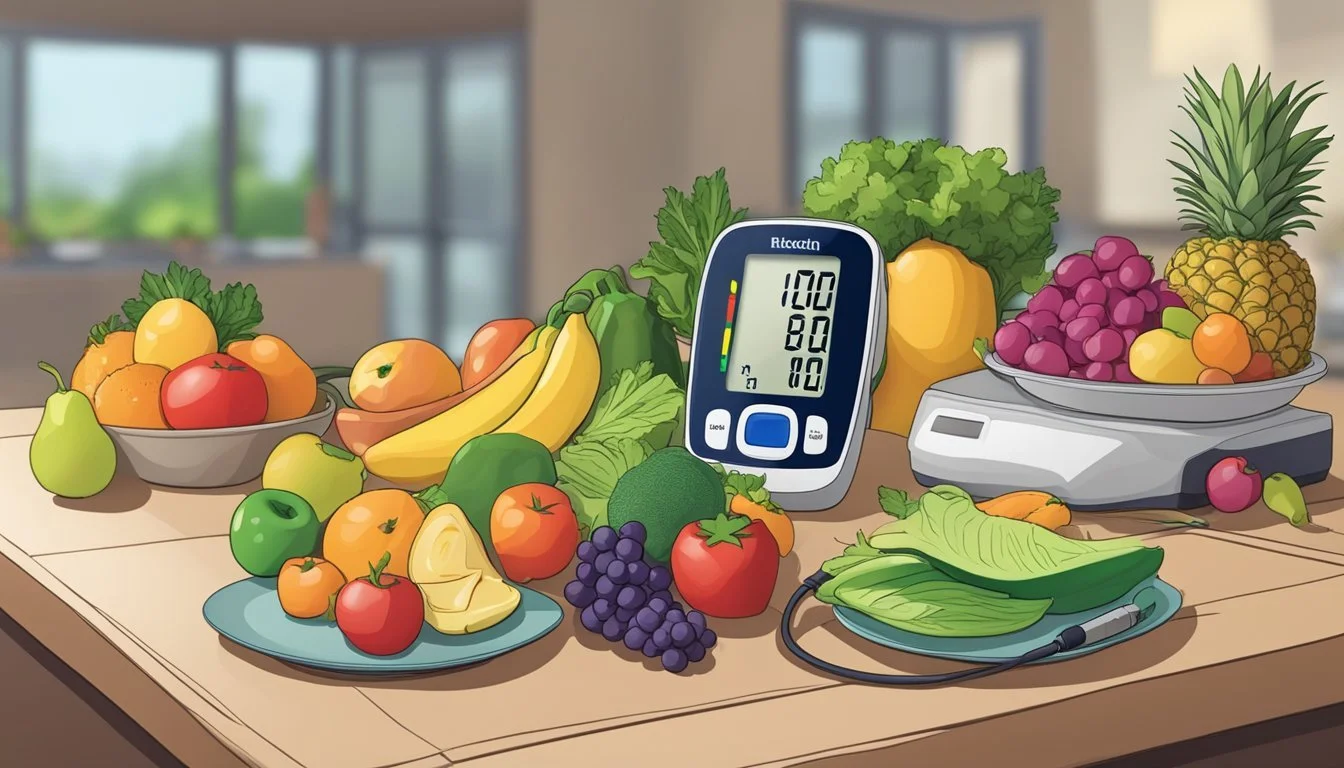How Does the Whole30 Diet Impact Blood Pressure?
Unveiling the Connection
The Whole30 diet, which focuses on the consumption of whole, minimally processed foods, has been a subject of interest for those looking to improve their overall health, including blood pressure management. As an elimination diet, the Whole30 program encourages participants to remove certain food groups from their diet for 30 days. This includes grains, sugars, dairy, alcohol, and legumes, which proponents of the diet suggest could lead to health improvements due to a reduction in inflammation and elimination of foods that can negatively affect the gut and hormonal balance.
Research into the effects of diet on blood pressure indicates that what one eats can significantly influence cardiovascular health. The Whole30 diet's emphasis on whole foods means a higher intake of vegetables and fruits, sources of potassium that can help in maintaining a healthy blood pressure. By excluding processed foods, which often contain high levels of sodium, the diet could potentially contribute to a decrease in hypertension risk. However, it's important to note that the Whole30 program also restricts the intake of certain food groups like legumes and whole grains, which are known to be beneficial for heart health due to their fiber content and associated effects on blood pressure.
The individual response to the Whole30 diet can vary, and the direct impact on blood pressure may be influenced by a range of factors, including a person's baseline dietary habits, the degree of change in their diet, and their overall health status. It is essential for anyone considering this diet to understand not only the possible benefits but also the importance of a balanced approach to nutrition and to consult healthcare professionals when making significant dietary changes, particularly if they have preexisting health conditions such as hypertension.
Understanding the Whole30 Diet
The Whole30 diet is a strict, month-long eating plan focused on consuming whole foods and eliminating processed foods to improve health and dietary habits.
Fundamentals of Whole30
The Whole30 diet insists on a strict adherence to consuming a whole food-based diet for 30 days. This diet is not just about weight loss; it is designed to act as a reset for one's eating habits, potentially leading to better health and a greater understanding of how food affects the body. During the thirty days, participants are encouraged to eat moderate portions of meat, seafood, and eggs, a variety of vegetables, and ample amounts of healthy fats. Fruits and juices are allowed in moderation as natural sweeteners.
Key Rules and Foods to Avoid
Strict rules govern the Whole30 diet, which prohibits the consumption of:
Grains: This includes wheat, corn, rice, and other cereal grains.
Dairy: All cow, goat, or sheep's milk products are banned.
Legumes: This category includes beans, lentils, peanuts, and soy.
Sugar: No added sugars or sweeteners, natural or artificial.
Alcohol: Completely off-limits in any form.
Participants must also eliminate all forms of junk food and processed foods, regardless of their ingredients, to embrace the habit of consuming whole, unprocessed foods. The diet's stringent nature is said to help individuals discover food sensitivities and understand how certain food groups may impact their overall wellbeing, including blood pressure.
Impact on Blood Pressure
The Whole30 diet has been discussed in relation to its effects on blood pressure, with indicative research suggesting potential benefits. This section examines the basic principles governing blood pressure and delves into the current research concerning the Whole30 diet's impact on this vital health marker.
Blood Pressure Basics
Blood pressure is the measure of the force of blood against the walls of the arteries. It's crucial for individuals to maintain blood pressure within a healthy range to prevent conditions such as heart disease, stroke, and kidney damage. Optimal blood pressure is generally considered to be around 120/80 mmHg. Factors influencing blood pressure include diet, exercise, weight, and genetic predisposition.
Research on Whole30 and Blood Pressure
The Whole30 diet, which emphasizes the consumption of whole foods while eliminating processed items, added sugars, and certain grains, may contribute to improved blood pressure. Although comprehensive clinical trials are limited, preliminary data and anecdotal evidence suggest that following the Whole30 diet might help lower blood pressure. This could be due to reduced sodium intake, increased consumption of potassium-rich foods like fruits and vegetables, or the diet's potential effects on weight loss and overall health.
One study mentioned in the provided search results indicates approximately two-thirds of patients experienced a reduction in blood pressure following the Whole30 program. The same study also noted weight loss and a decrease in waist circumference among participants, which are known factors in managing healthy blood pressure levels.
While these initial findings are promising, it should be noted that more research is needed to fully ascertain the diet's long-term impact on blood pressure and cardiovascular health. Health professionals typically advise individuals with high blood pressure to consult with a healthcare provider before starting any new diet, including the Whole30, to ensure it aligns with their health needs and medication regimens.
Dietary Components and Nutritional Aspects
The Whole30 diet emphasizes the consumption of whole foods such as vegetables, fruits, proteins, and healthy fats while eliminating processed items and additives. This approach can significantly influence one's intake of essential nutrients that affect blood pressure.
Role of Sodium and Potassium
The Whole30 diet inherently limits processed foods, which are often high in sodium. High sodium intake is associated with increased blood pressure. Conversely, the program encourages the consumption of potassium-rich foods like vegetables and fruits, which have a beneficial effect on blood pressure. Here are some Whole30-compliant foods and their roles:
Vegetables: High in potassium; aid in offsetting sodium's impact on blood pressure.
Fruits: Contribute to potassium intake which can help relax blood vessel walls.
Meat and Seafood: Sources of protein with varying sodium content; fresh options are preferred to manage sodium intake.
Importance of Balanced Nutrition
Balanced nutrition is crucial for maintaining optimal blood pressure. The Whole30 diet's focus on whole foods ensures an increased intake of essential nutrients, vitamins, and minerals. Key components and their benefits include:
Protein (from meats, seafood, eggs): Important for repairing and building tissues without directly affecting blood pressure.
Nuts and Seeds: Provide healthy fats, fiber, and nutrients, contributing to a balanced diet and better blood pressure management.
Eggs: A versatile protein source that's also rich in various vitamins.
Through the exclusion of grains and legumes, the diet could potentially reduce fiber intake; however, the increase in vegetables and fruits can compensate for this, supporting cardiovascular health.
Health Benefits Beyond Blood Pressure
In addition to its potential to stabilize blood pressure, the Whole30 diet may offer an array of other health advantages, from altering body composition to enhancing mental well-being.
Weight Loss and Body Composition
Individuals following the Whole30 diet often experience weight loss and improvements in body composition. This dietary approach emphasizes whole foods, which can naturally lead to a calorie deficit. Studies suggest participants may see a decrease in body mass index (BMI) and waist circumference after completing the program.
Improved Digestion and Gut Health
Digestion tends to improve as the diet encourages the intake of fibrous, whole foods and eliminates common irritants. Participants have reported a more stable gut health, which is integral to overall wellness.
Effects on Energy Levels and Sleep
Adherents to the Whole30 diet may notice a surge in energy levels during the day. This boost can be attributed to the elimination of sugar spikes and crashes. Moreover, eating whole foods can lead to better sleep patterns, a benefit that contributes to overall health.
Mental Clarity and Mood Stabilization
As the diet excludes processed foods and high-glycemic carbohydrates, it could positively impact focus and mood stabilization. Reports from those who have completed the Whole30 diet suggest an increase in mental clarity along with more stable and improved mood states.
Potential Challenges and Considerations
The Whole30 diet aims to act as a reset for the body, promoting healthy eating by removing processed foods and other potentially inflammatory items from one's diet. Nonetheless, it is a strict and restrictive program and may present certain challenges to those trying to maintain it, particularly in relation to blood pressure management.
Adherence to Strict Guidelines
The Whole30 diet has stringent rules that can make adherence challenging. For example:
No Sugar: Even natural sweeteners like honey are prohibited.
No Alcohol: This includes cooking extracts like vanilla or imitation flavorings that contain alcohol.
No Grains, Legumes, or Dairy: These common food groups are completely eliminated.
This level of restriction can be difficult to sustain, and individuals with a history of high blood pressure must ensure they are getting the necessary nutrients to manage their condition effectively.
Addressing Cravings and Habits
Individuals on the Whole30 diet may experience cravings due to the withdrawal of sugar, dairy, and grains. It's common for one to confront:
Intense cravings for foods that are no longer part of their diet.
Emotional eating habits that are challenged by the diet's restrictions.
Learning to acknowledge and manage these cravings is vital for long-term success, and may indirectly influence blood pressure by promoting healthier lifestyle habits.
Navigating Social Situations
Social settings pose a unique challenge for those adhering to the Whole30 diet:
Dining Out: Restaurant menus may not cater to the strict guidelines, which can make eating out a daunting task.
Family Gatherings: Traditional family meals might need to be modified or entirely avoided during the Whole30 program.
Developing strategies to handle these situations while maintaining the diet can be crucial for both sustainability and ensuring a supportive social environment.
Long-Term Health Impact and Sustainability
The Whole30 diet, with its emphasis on whole, unprocessed foods, can potentially have a positive effect on blood pressure in the short term. For sustainable health benefits, including long-term blood pressure management, transitioning from the temporary Whole30 framework to a balanced, nutritionally diverse diet is crucial.
Maintaining Results Post-Whole30
After completing the Whole30 program, one's blood pressure may have benefited from the elimination of processed foods and increased intake of fruits and vegetables. However, these improvements are contingent upon the maintenance of healthier eating habits. Participants should consider the following strategies:
Gradual Reintroduction: Slowly reintroducing eliminated foods helps in identifying any that may negatively affect blood pressure.
Mindful Monitoring: Regularly checking blood pressure can signal if certain foods should be avoided or consumed less frequently.
Incorporating Whole30 Principles into Daily Life
Adapting Whole30 principles for long-term health means focusing on whole foods rich in nutrients while allowing greater flexibility. It should not be overly restrictive to ensure sustainability. Key nutritional considerations include:
Balanced Diet: Incorporate a variety of foods from all groups, including whole grains and legumes, to ensure a wide spectrum of nutrients.
Moderation: Even compliant Whole30 foods can impact health if not consumed in moderation.





